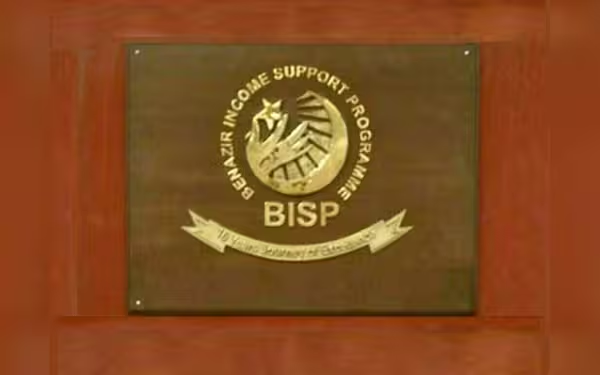Saturday, November 16, 2024 08:31 PM
Panel Recommends Expansion of BISP Board for Better Representation
- Parliamentary panel calls for equitable provincial representation on BISP Board.
- 126 vacant positions hinder BISP's effectiveness in serving families.
- Committee urges digital disbursement methods to improve cash collection.
 Image Credits: brecorder
Image Credits: brecorderParliamentary panel recommends expanding BISP Board for better provincial representation and addressing staffing issues.
In recent discussions surrounding the Benazir Income Support Programme (BISP), a parliamentary panel has made significant recommendations aimed at enhancing the program's effectiveness and representation. The BISP, established in 2010, is a crucial initiative designed to provide financial assistance to low-income families in Pakistan. However, the current structure of its Board of Directors (BoD) has raised concerns regarding equitable representation from all provinces, particularly Khyber-Pakhtunkhwa (KPK) and Balochistan.
During a meeting of the Senate Standing Committee on Poverty Alleviation and Social Safety, chaired by Senator Jan Muhammad, members expressed their dissatisfaction over the lack of provincial representation on the BISP BoD. Currently, the board comprises three members from Sindh and one from Punjab, leaving Balochistan and KPK without any representation. The committee emphasized that Balochistan, given its unique challenges and population, deserves at least one member on the board.
Officials from the ministry clarified that the BISP Act of 2010 does not require province-wise quotas for board appointments. However, the committee believes that this oversight must be addressed to ensure that all provinces have a voice in the decision-making process. Additionally, the committee proposed that the chairman of the Senate Standing Committee on Poverty Alleviation and Social Safety should also be included in the BoD to further strengthen representation.
Another pressing issue discussed was the alarming number of vacant positions within the BISP. The committee noted that 126 positions at the BISP headquarters and 1,037 positions in the provinces remain unfilled. This lack of staffing is detrimental to the program's ability to serve its beneficiaries effectively. Furthermore, the committee highlighted the need for clarity regarding the status of employees on deputation, as well as the challenges faced in Balochistan regarding the registration of districts and tehsils with BISP.
Currently, approximately 480,000 families benefit from the BISP, but many more remain unregistered due to the lack of national identity cards. This situation poses a significant barrier to expanding the program's reach. The committee also raised concerns about the disbursement methods, noting reports of long queues and mistreatment of elderly women during cash collection. To address these issues, the committee recommended adopting more efficient, transparent, and digitalized disbursement methods, while advocating for the removal of third-party agents from the process.
As of now, the BISP supports around 9.3 million families, but the growing demand for assistance calls for additional government financing. The committee's dissatisfaction with the absence of the BISP chairperson during the meeting further complicated discussions, leading to the deferment of the bill titled, "The Pakistan Ehsaas Targeted Subsidies (Riayat) Program Bill 2023" for further consideration.
The recommendations put forth by the parliamentary panel highlight the urgent need for reform within the BISP. By ensuring equitable representation and addressing staffing and disbursement issues, the government can enhance the program's effectiveness and better serve the millions of families relying on this vital support. As Pakistan continues to navigate economic challenges, it is imperative that initiatives like the BISP are strengthened to provide the necessary assistance to those in need.













